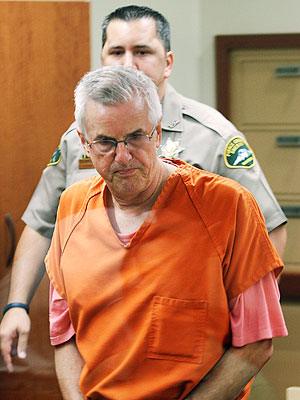PARIS — For decades, American horses, many of them retired or damaged racehorses, have been shipped to Canada and Mexico, where it is legal to slaughter horses, and then processed and sold for consumption in Europe and beyond.
Christinne Muschi for The New York Times
A slaughterhouse in Saint-André-Avellin, Quebec, where meat is processed for sale in Europe.
Lately, however, European food safety officials have notified Mexican and Canadian slaughterhouses of a growing concern: The meat of American racehorses may be too toxic to eat safely because the horses have been injected repeatedly with drugs.
Despite the fact that racehorses make up only a fraction of the trade in horse meat, the European officials have indicated that they may nonetheless require lifetime medication records for slaughter-bound horses from Canada and Mexico, and perhaps require them to be held on feedlots or some other holding area for six months before they are slaughtered.
In October, Stephan Giguere, the general manager of a major slaughterhouse in Quebec, said he turned away truckloads of horses coming from the United States because his clients were worried about potential drug issues. Mr. Giguere said he told his buyers to stay away from horses coming from American racetracks.
“We don’t want them,” he said. “It’s too risky.”
The action is just the latest indication of the troubled state of American racing and its problems with the doping of horses. Some prominent trainers have been disciplined for using legal and illegal drugs, and horses loaded with painkillers have been breaking down in arresting numbers. Congress has called for reform, and state regulators have begun imposing stricter rules.
But for pure emotional effect, the alarm raised in the international horse-meat marketplace packs a distinctive punch.
Some 138,000 horses were sent to Canada or Mexico in 2010 alone to be turned into meat for Europe and other parts of the world, according to a Government Accountability Office report. Organizations concerned about the welfare of retired racehorses have estimated that anywhere from 10 to 15 percent of the population sent for slaughter may have performed on racetracks in the United States.
“Racehorses are walking pharmacies,” said Dr. Nicholas Dodman, a veterinarian on the faculty of Tufts University and a co-author of a 2010 article that sought to raise concerns about the health risks posed by American racehorses. He said it was reckless to want any of the drugs routinely administered to horses “in your food chain.”
Horses being shipped to Mexico and Canada are by law required to have been free of certain drugs for six months before being slaughtered, and those involved in their shipping must have affidavits proving that. But European Commission officials say the affidavits are easily falsified. As a result, American racehorses often show up in Canada within weeks — sometimes days — of their leaving the racetrack and their steady diets of drugs.
In October, the European Commission’s Directorate General for Health and Consumers found serious problems while auditing the operations of equine slaughter facilities in Mexico, where 80 percent of the horses arrive from the United States. The commission’s report said Mexican officials were not allowed to question the “authenticity or reliability of the sworn statements” about the ostensibly drug-free horses, and thus had no way of verifying whether the horses were tainted by drugs.
“The systems in place for identification, the food-chain information and in particular the affidavits concerning the nontreatment for six months with certain medical substances, both for the horses imported from the U.S. as well as for the Mexican horses, are insufficient to guarantee that standards equivalent to those provided for by E.U. legislation are applied,” the report said.
The authorities in the United States and Canada acknowledge that oversight of the slaughter business is lax. On July 9, the United States Food and Drug Administration sent a warning letter to an Ohio feedlot operator who sells horses for slaughter. The operator, Ronald Andio, was reprimanded for selling a drug-tainted thoroughbred horse to a Canadian slaughterhouse.
The Canadian Food Inspection Agency had tested the carcass of the horse the previous August and found the anti-inflammatory drug phenylbutazone in the muscle and kidney tissues. It also discovered clenbuterol, a widely abused medication for breathing problems that can build muscle by mimicking anabolic steroids.
Because horses are not a traditional food source in the United States, the Food and Drug Administration does not require human food safety information as it considers what drugs can be used legally on horses. Patricia El-Hinnawy, a spokeswoman for the agency, said agency-approved drugs intended for use in horses carried the warning “Do not use in horses intended for human consumption.”
She also said the case against Mr. Andio remained open.
“On the warning letter, the case remains open and no further information can be provided at this time,” Ms. El-Hinnawy said.











